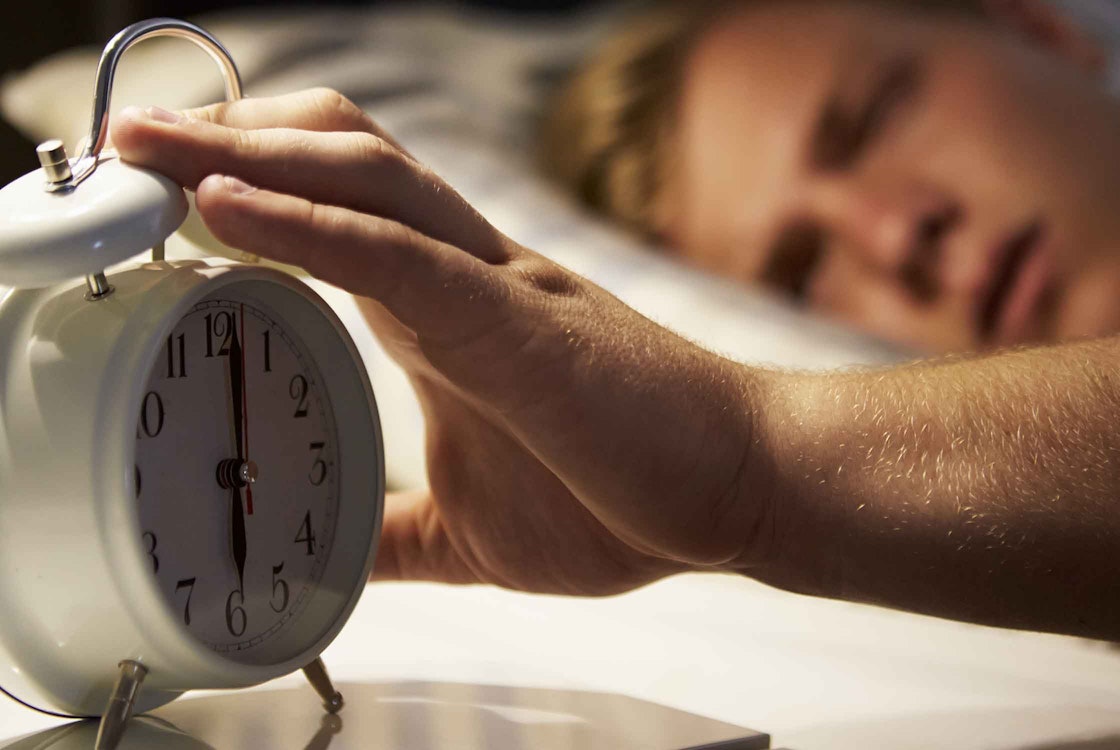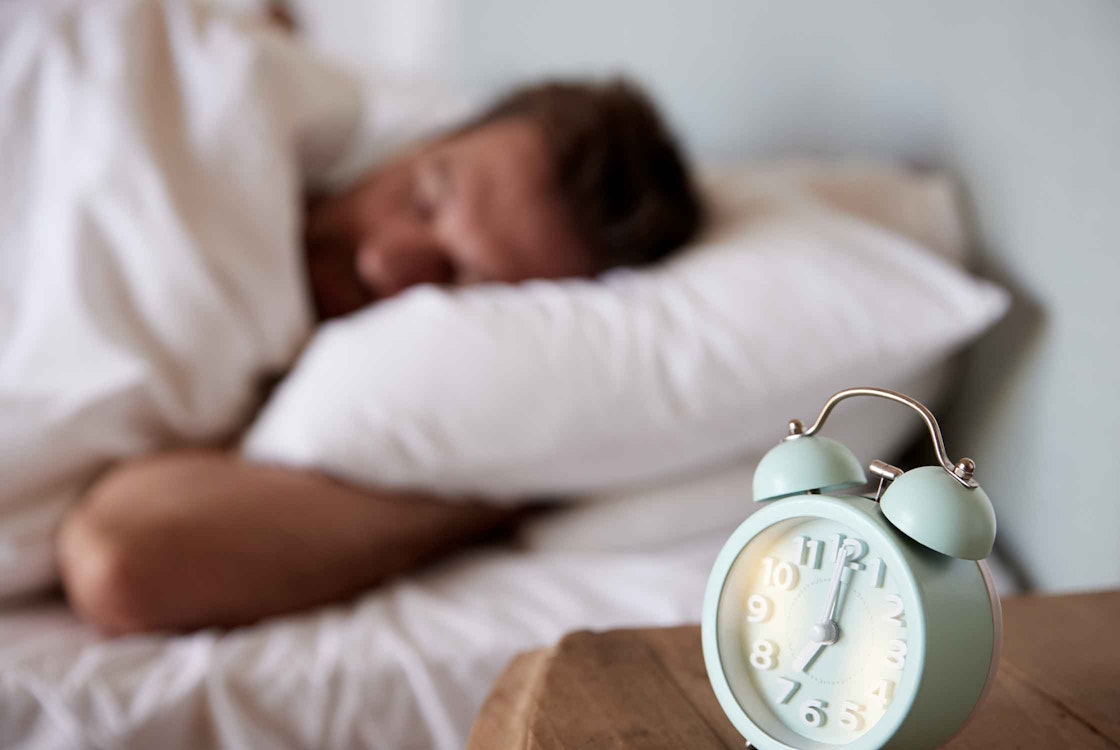

Sleep Guide for University Students
23 Mar 2023
At face value, you may assume that the impact of a good night’s sleep is simply the difference between feeling tired or not; it’s a given that you’ll struggle to stay awake in your lectures if you haven’t slept enough the night before. In reality, sleep has a much greater impact on all core aspects of your mental functioning and general well-being. This is why, as a student, you must endeavour to make your sleeping habits a priority during your time at university.
In this sleep guide for university students, we’ve detailed a list of key tips to follow to develop the best sleeping habits possible; this includes following a regular schedule, getting a full 8 hours of sleep per night, and making your sleep a priority over everything else. As well, we’ve included a checklist of items you may wish to invest in to aid in the development of your healthy sleeping routine.
Why is Getting Enough Sleep So Important for University Students?
In summary, getting sufficient and consistent sleep is essential for maintaining healthy memory retention and recall, informational and emotional processing, and critical and creative problem-solving. Essentially, healthy sleeping habits underpin all of these key cognitive functions that university students utilise on a daily basis.
It’s an understandable assumption that, when you’re in the unconscious state of being asleep, your brain also shuts off. In actual fact, your brain uses the time that you’re asleep to undergo multiple crucial processes that you use when you’re awake.

A simplified explanation of these processes is as follows:
- Memory Retention and Recall: While you’re asleep, your brain sorts through memories of the previous day stored in the hippocampus, i.e. the short-term memory centre of your brain. It then logs the most important ones into the cortex, the part of your brain that stores long-term memories for later recall.
- Informational Processing: Similarly, during sleep, your brain sifts through the information you’ve learnt the day before. It stores the useful information for you to remember later while dispelling the less useful information to be forgotten.
- Emotional Processing: Along with the previous day’s information, your brain also reviews the emotions you felt that day. Your limbic system processes these emotions while you sleep, regulating the impact of the emotional events you face in your daily life.
- Critical and Creative Problem-Solving: The processes of critical thinking and creative problem-solving primarily rely on associative memory. Sleeping maintains the healthy functioning of your memory-based processes; this in turn supports your ability to recall information when you need to think critically or creatively.
Best Sleep Guide for University Students
1. Plan a Regular Sleeping Schedule Based on Your Natural Rhythm
When planning your regular sleep-wake schedule, it’s very important to consider the natural rhythm of your mind and body. Ideally, you should go to bed no later than 11-12pm to wake up no later than 8-9am. Nevertheless, if this goes against your natural cycle, it’s better to work with your body rather than against it.
In terms of sleeping habits, there are three types of people in the world; we can categorise these sleepers using a few bird-based metaphors. There are larks, who naturally wake up at the crack of dawn; night owls, who are most active at night; and finches, who are somewhere in between the previous two. Studies have shown that larks and night owls at the extreme ends of the scale typically perform worse academically than finches. So, in a perfect world, your sleeping schedule would sit in this happy medium; i.e. sleeping from around 11pm to 8am.
Still, this may not be the best advice if you’re hardwired to be a night owl or a lark. Some people do just perform better very early or late by nature; if this is you, then you should tailor your own schedule to the times that you feel you function best. The key is ensuring that your schedule allows for 8 full hours of sleep, as we’ll go on to explain.

2. Calculate Your Bedtime to Allow 8 Full Hours of Sleep Before Your Wakeup Time
While we’ve touched on the general advice for ideal sleeping times, your schedule should ultimately depend on your sleep length. You need to allow yourself roughly 8 full hours of sleep per night; this means you must calculate your bedtime to be 8 to 9 hours before you intend to wake up.
According to experts, 18 to 25-year-olds require around 7 to 9 hours of sleep per night to function at their best. Both undersleeping and oversleeping beyond this duration will have a negative impact on your mental state the next day. This is why you should aim for a good 8 hours sleep per night, give or take an hour on either side.
To calculate your ideal bedtime, start with the time you intend to wake up. Work backwards from this time 8 hours, then add on an additional hour for the time it takes you to fall asleep. The resulting time is when it would be best for you to get into bed.
3. Follow Your Sleeping Schedule Consistently
Once you’ve planned your ideal sleeping schedule, you must stick with it consistently for it to really benefit you long-term. This is necessary to train your mind and body to naturally fall in line with the cycle you decide.
As humans, we are natural creatures of habit; our brain chemistry involuntarily adapts to the habits and behaviours that we develop voluntarily. To provide some quick scientific context, when your brain detects that it’s time to go to sleep, it releases a hormone called melatonin; this hormone tells the rest of your body to begin the sleeping cycle, giving you the sensation of feeling sleepy.
Although we can’t actively control when our brain releases this hormone, we can train it through our daily habits. In other words, sticking to a consistent bedtime will train your brain to know when it should release its melatonin. You’ll therefore find it increasingly easy to fall asleep at your planned bedtime the longer you stick with your regular schedule.
4. Avoid Taking Naps During the Day
Tempting though they may be, try your best to avoid taking naps when possible. Having a little afternoon nap here and there isn’t a crime; however, making long naps a part of your daily routine will negatively impact your main sleep at night.
The worst times of the day to nap are in the early morning or late evening. If you absolutely must have a nap, timing is key; time it to be 3 hours after your wakeup time, but no less than 6 hours before your bedtime. Also, limit the napping time to a maximum of 30 minutes. Otherwise, naps are best to be avoided; try to resist the temptation of crawling back into bed after your morning lectures to maintain the regularity of your nighttime sleeping schedule.

5. Prioritise Healthy Sleeping Habits Over All Else
To give a final all-encompassing tip, your sleep should take priority over everything else in your life. This includes both work and play; you may think that sacrificing sleep for study will make you a better student, but scientifically, this isn’t true.
As we’ve discussed, your brain uses sleep to undergo much of its most important cognitive processes. There’s little point in limiting your sleeping time to cram in more study time; without sleep, your brain won’t retain the information you’re trying to learn. And, ultimately, your mental well-being should be the most important thing in your life. You need enough sleep to keep your mind happy and anxiety-free. So, regardless of whether you’re on the lash or in the library, make your late nights a rarity rather than a routine.
Checklist of Items for a Good Night’s Sleep
1. High-Quality, Comfortable Bedding
If nothing else, the most important investment in your sleep is the purchase of quality, comfortable bedding. As per our advice, you can make all the effort in the world to set yourself up for a good night’s sleep; to then get into an uncomfortable bed will only render your efforts useless.
Staying in halls or a rented house is a huge part of most students’ university experience. And, unless you got lucky with your digs, it’s likely that the bed in your accommodation has been well-used by many students before you. Luckily, it’s possible to transform an uncomfortable old mattress into a soft sleeping haven akin to a luxury hotel; all you need is the right bedding.
At Downland, we want our student customers to have everything they need for a cosy, comfy sleep while away from home. This is a time when you’re probably overwhelmed with organising everything else that you’ll need for uni; we understand this, so we’ve put together some Student Bed Packs as a one-stop point to sort out your bedding.
Our packs include linen-only sets, like the Osborne Stripe Linen Set, or combination sets that include the sheets, duvet, and pillows, like the Osborne Stipe Essential Bedding Pack. If you’ve already got a favourite set of sheets, then we also have an Essential Duvet and Pillows pack that includes the duvet and pillows only. Our duvets and pillows are filled with 100% hypoallergenic ‘feels like down’ hollowfibre that creates an insulated yet breathable, sumptuously soft bedding.

2. A Sleeping Mask and Set of Earplugs
Consider purchasing a sleeping mask and set of earplugs to take with you to uni. These are small, cheap, yet invaluable investments that we promise you’ll appreciate when you’re in your accommodation.
Another inevitability of uni life is having to live alongside other students; again, you’d be very lucky not to have noisy roommates or neighbours in your accommodation. Earplugs will effectively block out these noises that may otherwise disturb your sleep. In a similar vein, the curtains in student accoms are very often unsubstantial; adding a sleeping mask to your uni pack will complete your sleeping accessories for a totally uni-proof slumber.
Products Mentioned in This Article:


Downland Essential Hollowfibre Duvet 10.5 Tog & Essential Pillow(s)
- Essential
Regular priceFrom £10.02 ex VAT£12.03 inc VAT


